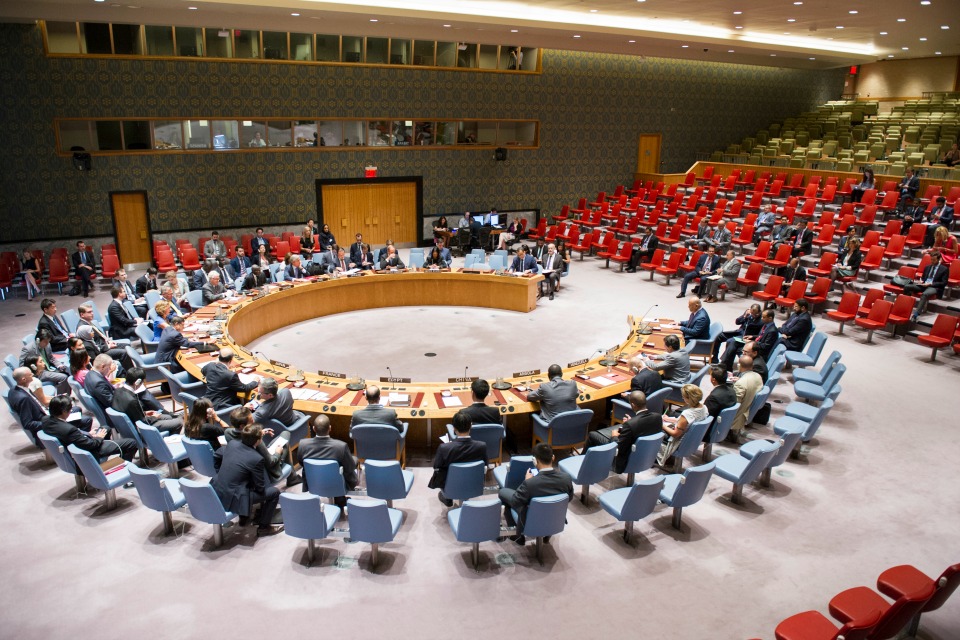"Transparency is an important part of our tool kit when it comes to trying to do a better job at conflict prevention and conflict resolution."
Statement by Ambassador Matthew Rycroft, UK Permanent Representative to the United Nations, in UN Security Council Wrap-up Intervention

Thank you very much Mr President. Thank you Ramlan.
Thank you and congratulations for everything that you and your team have done in the successful month of August. I think we have done a lot, and under your leadership have reacted to a lot going on in the world so I’m glad that you have found time for this wrap-up session. I’ll keep my remarks short and focus, as you suggested in the helpful concept note, on a couple of issues.
First of all, conflict prevention and also the relationship between the General Assembly and the Security Council. And the link between the two issues is transparency, so I very much agree with what Gerard was saying about that and indeed his other point about the flow of information from the Secretariat. So first of all, just to take one example of conflict prevention where we have failed as a Council – and that is Syria. I thought we had a good session yesterday on chemical weapons in Syria, but when you look at the 5 year history of the conflict this Council has failed to have any real impact on solving, politically, the conflict still less preventing it in the first place. A lot of the effort to try to do that has to take place, inevitably in private, but there are risks when we do too much in private. So I very much agree with what Gerard about confidentiality of things that need to remain confidential, but equally some things I think can be more transparent. And I think we would benefit from more confidentiality on some issues and more transparency on others. Trying to hide the scale and nature of the Syria conflict from the wider world is not something that benefits conflict prevention or the search for peace.
If you take the situation in Aleppo as the most extreme example, where the suffering of the Syrian people is at its most extreme this is, I think, a telling example of a reality that however bad we think it might be, it can always get worse. And our job here is to try to shine a spotlight publicly on the situation there in order to try to bring pressure to bear to encourage those responsible for the situation there to reform their ways and to bring peace where there is currently war and tragedy and suffering.
So shedding light on issues on our agenda is extremely important and is the flip side of the coin of being confidential where we need to be confidential. I’m not talking about shedding light on an issue in order to shock or horrify people or still less to score political points. What I mean is that by focusing on a deteriorating situation we should show the world that we are watching and that there is at least something that we can do to try to prevent bad situations getting even worse. And if we do all of that in private then we are giving a free pass to those who are trying to prosecute the savage, mindless war, by which I mean the Syrian regime against their own people. So transparency is an important part of our tool kit when it comes to trying to do a better job at conflict prevention and conflict resolution.
And second, completely different issue that I want to focus on where there is the same tension between confidentiality and transparency is the selection process for the next Secretary-General. We’ve now held three straw polls. Unsurprisingly the full results have been available on Twitter within a few minutes of the results. And I think that we’re getting the worst of both worlds. What we should be aiming for is confidentiality as it relates to the candidates. Anything that we talk to them about in the privacy of the Security Council, that should remain absolutely confidential but then there are some other issues, including the results where I feel as though we could afford to be much more transparent without damaging their dignity in any way.
So I would favour having another look at what we do with the results of the straw polls, trying to be more transparent, building up the relationship with the Security Council and the General Assembly in the meantime. And to refuse to go in that direction reminds me of the English King Canute who tried to hold back the incoming tide. We are not going to do so; we’ll just look foolish by trying to keep those results private. So I would be in favour of more confidentiality on some issues, but much more transparency on others in order to maximise the impact of our work.
Thank you.